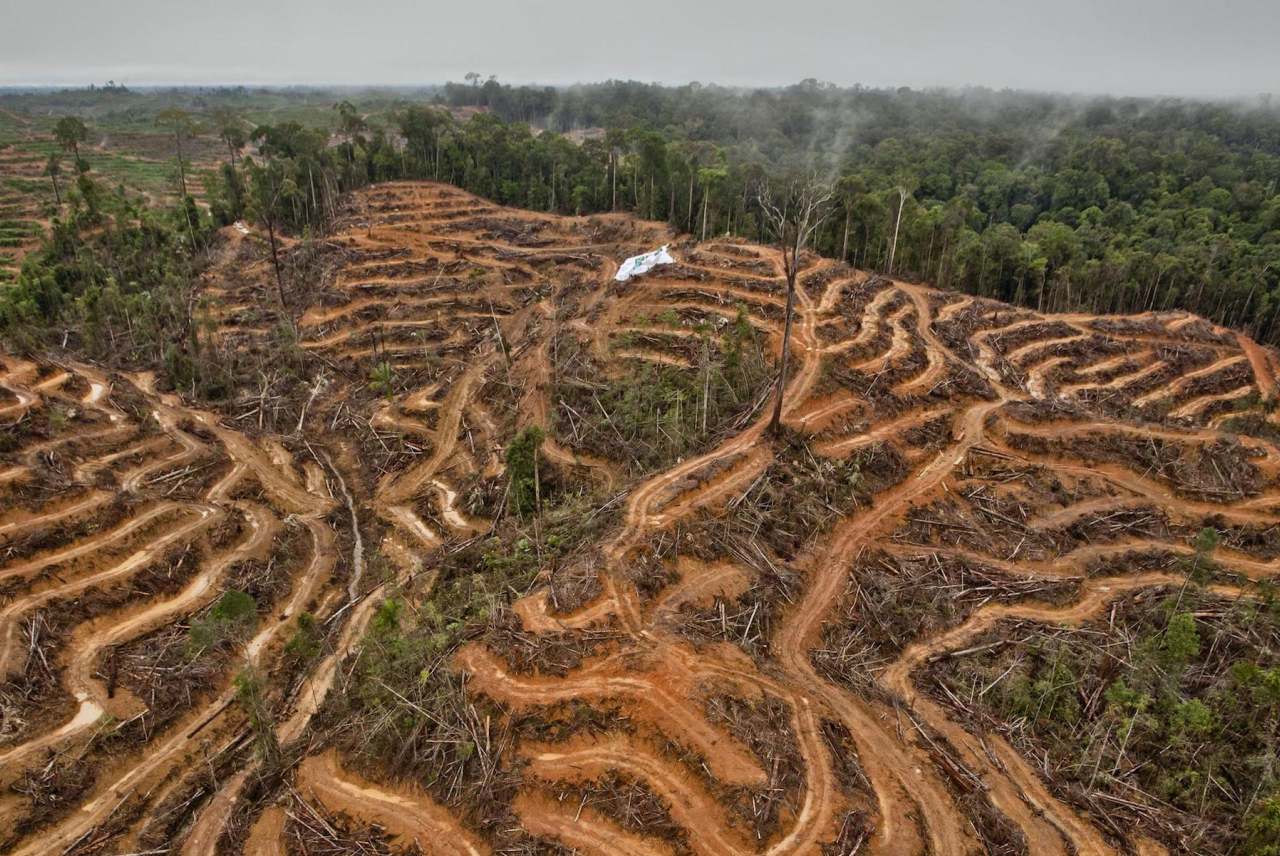What are the problems with palm oil?
All palm oil’s plus points have led to a huge demand globally, which has had devastating consequences. Forests are destroyed to be turned into plantations, displacing people and wildlife and releasing greenhouse gases. When peatlands are drained to grow palm, they become flammable and serious fires can result, causing even more carbon emissions, as well as health problems for people breathing in the smoke.
Fires were particularly bad in 2019, with smoke from forests in Indonesia travelling to Malaysia and Singapore and affecting millions of people. When the Roundtable on Sustainable Palm Oil (RSPO) claimed that less than half of 1% of the hotspots identified during the 2019 fires were on RSPO-certified areas, Greenpeace said their data was misleading. In 2021, the RSPO established a Hotspot Hub to provide more transparent data, using satellites to monitor fires and hotspots, and claims to show there are fewer hotspots in RSPO-certified areas than non-certified areas.
According to Greenpeace, more than 900,000 people in Indonesia suffered acute respiratory infections due to the smoke from fires in 2019, and nearly 10 million children are at risk of lifelong physical and cognitive damages due to air pollution.
What are companies doing?
Company approaches to the issue vary hugely, from some providing no information at all about palm oil sourcing (despite listing palm oil derivatives in ingredients lists), to others going to great lengths to reformulate products to avoid using it at all.
Even ingredients which technically contain no palm may be made from a process that uses palm as a feeder material. Palm oil-free Queenie Organics’ founder told us that non-palm oil-based emulsifiers tend to be fairly expensive in comparison, around 4-10 times the price.
PHB Ethical Beauty for example are reducing the use of palm-based ingredients like stearic acid and working with suppliers to produce completely palm-free versions. They also push suppliers for ingredients like Glycerine and Cetyl Alcohol to be derived from coconut or soy instead.
Odylique have sought assurance from their suppliers that if they are at certain times obliged to use palm oil as a feeder material, it is from a certified sustainable (RSPO) source. Lush said it was moving towards a bigger picture solution to shape the whole industry and wanted the collaboration of other companies and investment in order to provide a range of palm-free synthetics.

